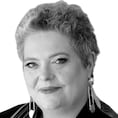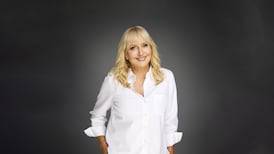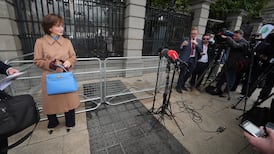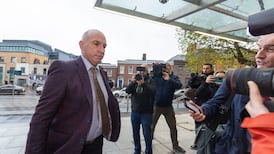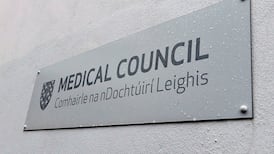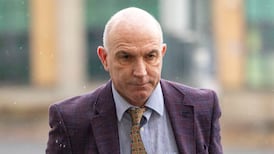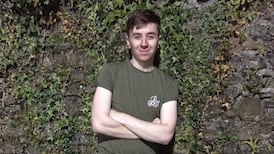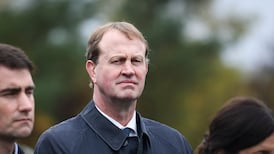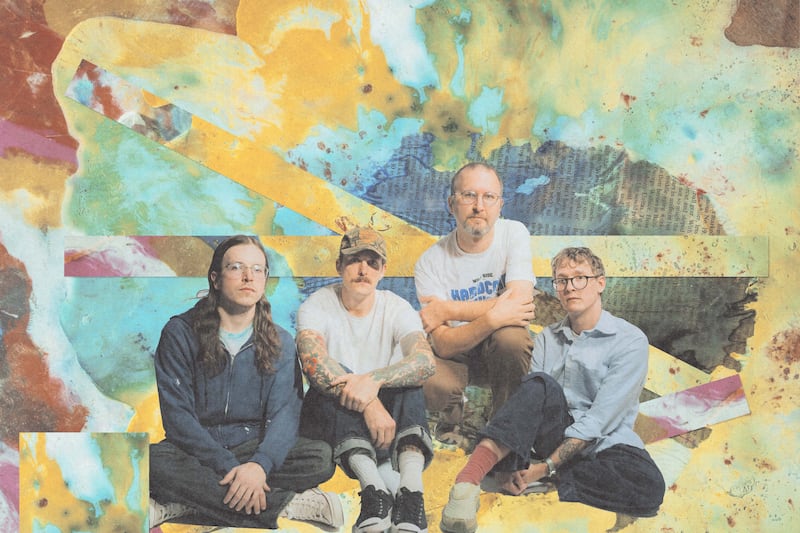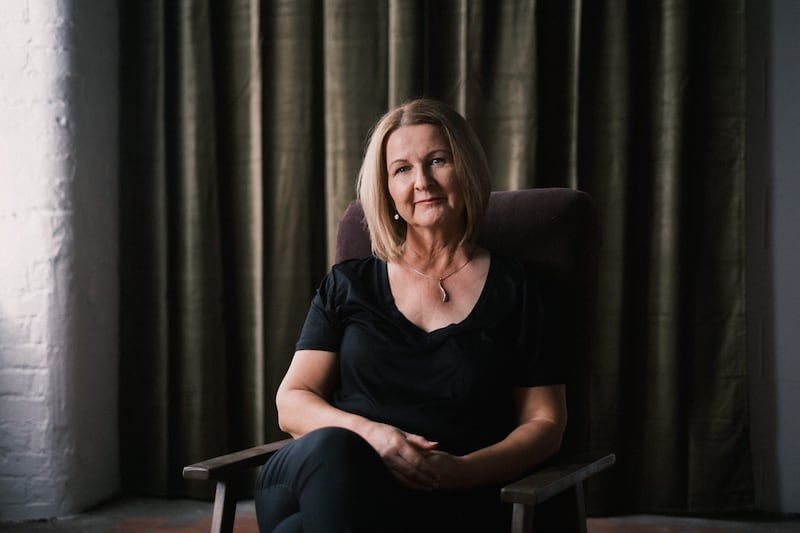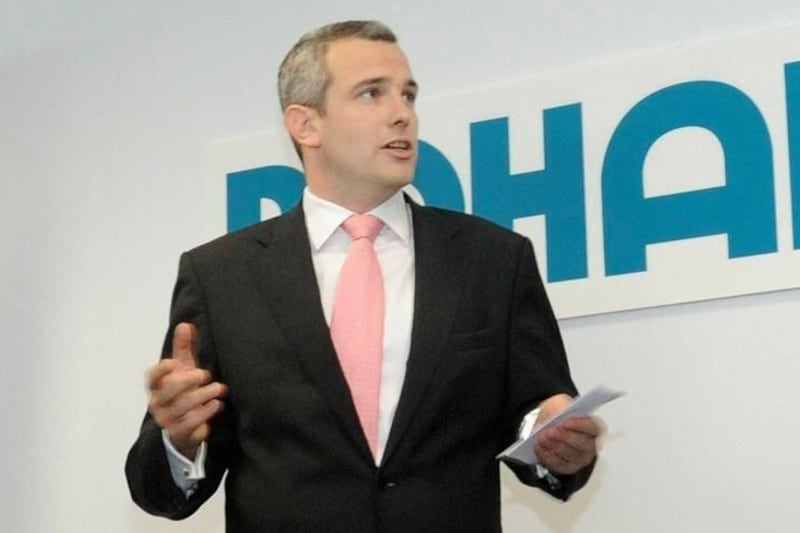At 30 Ellen Keane, gold medal winning paralympic swimmer, trailblazer and one of three new judges on RTÉ’s hit show Ireland’s Fittest Family, is on a mission to find out who she is outside of the swimming pool. It might be a stretch to call this a spiritual journey, but when we meet for coffee in Dublin the conversation quickly turns to a month she spent in Indonesia while travelling last year and various “signs” from “the universe” that she is on the right path.
Keane retired from swimming last year after missing out on a medal in the Paris games, having competed in four successive paralympics – winning bronze in Rio in 2016 and gold in Tokyo 2020, both in the 100 metre breaststroke. That gold was the highlight of an astonishing paralympic career which began in Beijing at the age of 13. She remains the youngest Irish person to compete at that level, and has probably done more than anyone else in this country to increase awareness of the paralympics.
The last couple of years have been a rich time of self-discovery for the former athlete. Keane explains that she has found herself “leaning into the universe and the science of the universe”. Having struggled with self-acceptance over the years, this philosophical approach has given her more confidence. “I’m much more content in myself and my decisions now,” she says.
Keane is hardly the first person to explore this intuitive way of living, which is having something of a moment. Published last month, The Signs by Dr Tara Swart, subtitled “the new science of how to trust your instincts”, is just one example of a slew of books that endorse this way of thinking. Smart and self-aware, Keane is also conscious that talk of “leaning into the universe” can induce serious eye-rolling. “Sometimes when you talk about trusting the universe people are like, ‘Okay, here’s your tinfoil hat.’ Some people don’t get it. I think a lot more women do.”
READ MORE
She doesn’t seem too bothered about what anybody else thinks, and anyway, for her the approach is clearly working. When Keane broke up with her boyfriend recently, the philosophy helped her to “see the bigger picture of why we’re not meant to be together at this time, and that’s okay. I got through Covid with him, I won a gold medal with him, we’ve served each other’s purpose.”
Newly single, Keane describes herself as having “shed a skin”, but that’s no shade on her former boyfriend. They remain good friends and happily “co-parent” their dogs Denny and Rafa. “Do you know what’s the most amazing thing ever?” she asks. “It’s having someone in your life who has absolutely nothing to do with your life, but loves your dogs as much as you love your dogs. And you can trust that person with their lives, and you can split the bills on everything.” Her mother might be sceptical of the arrangement – “she doesn’t get it,” Keane laughs – but it works for them.
Being single suits her. “It came at a good time ... I need to figure out who I am and where I am going and that’s a really hard thing to do when you are in a relationship,” she says. “It helps that other women are telling their stories about being single. And a lot of the beautiful women I see around me just happen to be single. These women look well rested and seem to have a lot of hobbies and are looking after themselves very well, which is a big thing for me in this transition.”
She has a tendency, she explains, to focus less on herself when she’s in a relationship. “I love looking after people, I’ll always put them before myself. At the moment, when I am trying to figure things out, I need to be my own priority.”
She is also valuing the other kinds of love in her life. “Love is so important, but I get it from my friends,” she says. One of her best friends became single again around the same time, which has been a happy development for both of them. “When I was a full-time athlete and we were both in a relationship, we hardly got to see each other. Now we joke about our little dates, we talk about what’s going on in the world, she is my pinned chat [on WhatsApp], whereas before my ex would have been my pinned chat. I came home from Belfast after being away with some work colleagues recently, and she collected me from the train station. So you can have love in your life without having a man. I’m very content.”
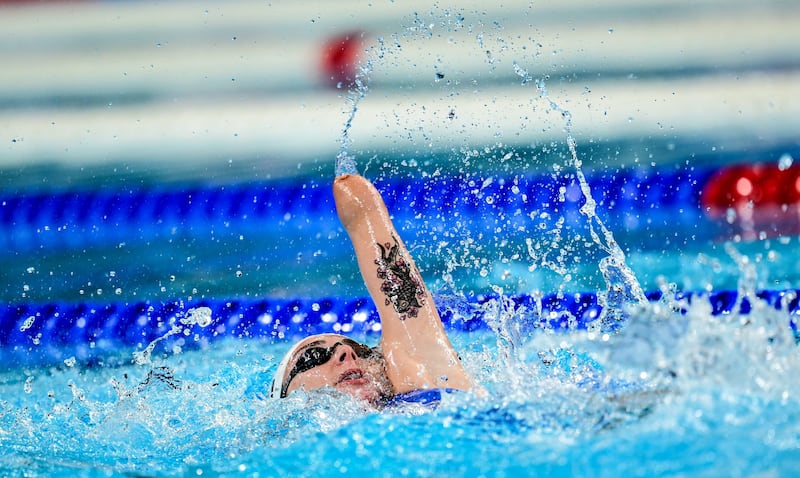
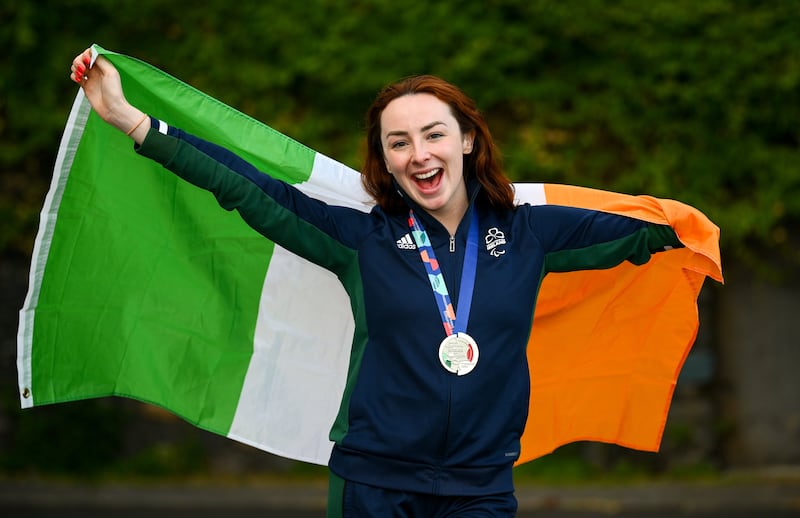
She returns to that trip to Bali last year where she completed a yoga teacher training course. It was full of “signs”, or what other people might call coincidences. The most significant of these happened when, during the course, she was asked to do a meditation on somewhere that felt like home. “I thought of this East Wall apartment I used to live in. It made me really emotional.” She was comforted afterwards by a Spanish woman who had a Guinness tattoo. “I asked about the tattoo and it turned out she used to live in Ireland. In the exact apartment block I lived in, the one I’d been crying over,” she says, still delighted by this happening. “That felt like being hugged, like somebody saying, ‘This is where you need to be right now and anything outside of this doesn’t matter. You are where you are meant to be.’”
Keane didn’t always feel that way. The youngest of four siblings, she was born without a left arm from below her elbow. “It was a surprise,” she says, of the disability. “Fortunately for me I have amazing parents who just threw me into whatever the others were doing. That’s how I started swimming.” She began competing at the age of eight, discovered she loved racing, and her life was consumed by competitive swimming for the next two decades.
She has spoken a lot in the past about her struggle to come to terms with her physical difference. For years, she led something of a double life, excelling as a paralympic athlete but often using clothes to hide the fact that she was missing part of her arm. “The swimming pool was the only place I didn’t hide,” she says.
There are complex reasons for her lack of self acceptance. She remembers aged 13 attending the Beijing Paralympic Games, the year swimmer Michael Phelps won eight medals. “So everyone was like, ‘Oh my god, did you meet Michael Phelps?’ And I’m like, ‘No, he’s at the Olympics.’ And then they’d be like, ‘But you were at the Olympics?’ And I was like, ‘No, I was at the Paralympics.’ This would prompt a difficult conversation about her being disabled. “So I started hiding my arm. I started not talking about swimming.”
You were only fully yourself in the pool? “Yeah, that was the only time I felt comfortable, with my friends and family around me, because I couldn’t hide who I was and I was surrounded by people who didn’t care, who understood me. I could be myself. When I was swimming I was this hyper, giddy kid, but out of the water I didn’t like attention. I wouldn’t like anyone to notice me. I wanted to be wallpaper.”
She has worked hard to overcome what she calls her own internal ableism. “I grew up believing I was unlovable, that I wasn’t attractive, or worthy. I couldn’t see anybody who looked like I did. In culture we [people with disabilities] weren’t represented as being happy, we were evil. The only representation I had was Nemo the fish. I was a cartoon. So I didn’t think anyone would love me or want me, and so I’d end up in [bad] relationships.”
As a teenager, spending time in boarding school in England working with a British paralympic coach, she became friends with Lauren Steadman who “had the same arm as me” and who modelled a more positive way of living with her disability. Spending time with Steadman was a revelation. “She was so outgoing, she was driving, she had a boyfriend, she joked about getting her nails done half price,” Keane smiles. (Incredibly, Keane who only has one hand, has on occasion been charged full price for a manicure.) Despite this influential friendship, Keane continued to struggle. “I had no self worth ... and there was a weird dynamic of being Irish in England. So when I came back to Ireland I didn’t know how to respect myself or value myself.”
Returning to Dublin, she studied for her Leaving Cert at the Institute of Education, where she continued hiding her disability. It was only when attending a culinary course that she decided, “I’m going to fake it, I’m going to pretend I am the most comfortable person in the world.” Slowly, things started to change. She realised that while she was stronger than she’d ever been physically, “my mental health was in the bin”. She began taking yoga classes and working with sports psychologists. In 2017, she gave a TEDx talk called My Lucky Fin, about how she had changed her perception of herself and of disability. It was a turning point, opening her up to opportunities for public speaking, and helping Keane to embrace her disability as “a superpower” rather than something to hide. This growth all culminated in gold at the 2020 games in Tokyo, “a lovely moment”.
She is passionate now about using the word “disabled”. “Sometimes I’m not allowed to be disabled. I’m disabled when it’s convenient to people who want me to be a hero.” When is it not convenient? To answer this, she tells the story of applying for the blue badge, the disabled parking permit. She was denied the badge at first because at the time her car did not need adaptations.
When she appealed the decision, she had to sit in front of a panel. She recalls one of the doctors on that panel encouraging her to get a prosthetic so that “nobody would ever know you had one arm”.
“That is the sort of thing I was being told,” she says now, incredulous at the memory. “So where do I belong? I’m disabled but I’m not disabled ... even as a kid I remember going through a theme park and all the disabled people getting in free but not me. You are going to be stared at, you are going to be judged, you are not able to do certain things, but you’re not disabled. If I am not disabled, then why are you staring at me? Why am I different? I need help for things but I’m afraid to ask. So now it’s important for me to say, ‘I’m proud to be disabled.’ I don’t want kids to be ashamed of using that word.”
She got the blue badge eventually, but having to fight for it clearly still rankles. “If you give me a blue badge I’m not going to take advantage, because I’m not an asshole and I know that some people need things more than me. I’m only going to use it when I need it. It’s about giving people the benefit of the doubt. People who are disabled are stubborn, they don’t like asking for help, they like to be independent. Give them the chance to be independent, but also when we do ask for help, then help us.”
I know I’m going to be okay. As long as I respect myself and I love myself
— Ellen Keane
Her memoir, Perfectly Imperfect, was published last year. She wrote it to help others. Being a high-performance athlete eventually allowed her to attain confidence in her body exactly as it is, “but not everybody gets that opportunity ... somebody who is told their baby is going to be born with a limb difference, that’s really heavy. I feel a responsibility. I wanted to help, I don’t have all the answers, but maybe you’ll find some of the answers in the book”.
Having been “hyper independent” for the past 11 years, first leaving home as a teenager, she recently moved back home to Clontarf. “I’m going to let my mother mind me for a bit.” She has her own space in the attic, avoiding her childhood bedroom “thank god”. She’s been working on a sports internship for RTÉ since May, and is still in demand for speaking engagements. She continues to work with some of her Paralympics sponsors, including Toyota. “They didn’t have to keep me on, but they still believed in me and gave me opportunities to start my career again,” she says, with gratitude.
[ Perfectly Imperfect by Ellen Keane: A triumph of will in the face of adversityOpens in new window ]
Three years ago, Keane was a finalist on Dancing With the Stars and she is back on our screens shortly as the youngest coach on the 13th series of RTÉ’s Ireland’s Fittest Family. She is one of three newbies on the popular show, joining former rugby international Andrew Trimble and GAA star Michael Darragh MacAuley. The other coaches are Anna Geary, Donncha O’Callaghan and reigning Fittest Family champion coach Davy Fitzgerald. Each coach mentors some of the fittest families in the country through gruelling physical and mental challenges designed to push them to the edge, with one family emerging victorious.
Did Keane learn anything about herself through that experience? “Yeah, I didn’t know I had a voice,” she says. “I definitely didn’t have a voice by the end of filming. I thought I’d be very reserved in terms of my coaching style ... but I became a different monster that I didn’t think existed. It was fun and it definitely made me feel like I actually could be a coach one day, maybe not any day soon. I spent so many years in swimming, I’ve learned so much from so many different coaches, that maybe it’d be a shame if I weren’t to come back and use it some day.” She loved working with her two families on the show, and is excited for audiences to see the results.
Her sports internship runs out in November, and she has few plans beyond that. Still, there’s no sense of panic in the ebullient Keane, only a feeling that things will unfold exactly as they should. “I know I’m going to be okay. As long as I respect myself and I love myself and as long as whatever I’m doing has purpose, it’ll all work out.”
Ireland’s Fittest Family starts on RTÉ on Sunday at 6.30pm on RTÉ One and the RTÉ Player
